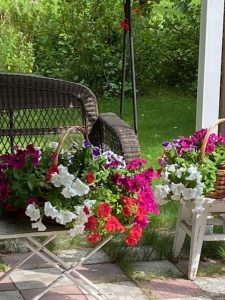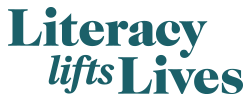Natta’s Story: Building a New Life After the Disruption of War, Part 1
Natta may have left her native Russia to live with her daughter in Frederick during the war with Ukraine, but these days it’s an earlier war she’s thinking about: World War II.
She’s remembering her father, who served as a soldier for the Soviet Union and helped liberate Berlin from the Nazis when he was only 20 years old. “It was thrilling and awful and great,” she said. “It was a very difficult situation, and he survived. Victory day was never a holiday for him.”
Then there’s her mother, who as a teenager had to flee Moscow as the Nazis approached and spent the war sewing parachutes in a factory.
“It’s awful to be in a country which is in war,” Natta said. “My father, he never talked about the war. But I remember. I am from a generation who realized that the war is something awful, the worst thing that might happen.”
She’s proud about how strong and brave her parents were as they dealt with the horrors of war at such a young age, but she also grew up seeing the toll it took on their lives – including the practical ways it disrupted and changed what was possible for them. For example, both her parents were unable to continue their education. Her father instead spent his life working in a civil aviation factory, and her mother as an agricultural drafter.
Her parents gave Natta and her sister a different life. They raised them in Moscow and made sure both went to the University of Moscow. Natta developed a career as a software engineer, married and had a daughter. Her sister emigrated in 1991 to New York, where she became a social worker.
Over the years Natta came to the U.S. to visit her sister, then her daughter who in 2003 married an American and settled in Maryland. It was easy to come and go on a tourist visa, and Natta had a nice rhythm worked out.
Then Russia invaded Ukraine, and Natta found her own life upended by war. She had to make a tough choice: would she stay in Russia and risk never seeing her daughter and grandchildren again, or would she start a new life here in Frederick?
“The relationship between America and Russia was getting worse and the embassy in Moscow was closed,” she said. “I couldn’t get my tourist visa and my daughter told me she could make some space for me to come live with her. I was retired, I decided yes it was probably the right time to come.”
So she moved, even though it meant leaving her husband who is still working full time as a neurosurgeon in Moscow. “He loves his work more than anything in the world,” Natta said. “So it’s very difficult for me to persuade him to come. But now he’s visiting often.”
Natta doesn’t regret her decision. She enjoys living with her daughter and family. “Life is more full,” she said. “I take care of them, they take care of me.” 
But there was a problem: Natta’s grandchildren don’t speak Russian. At the same time, Natta’s English was limited, making it difficult to communicate with her grandchildren, let alone navigate life in a new country.
Check back next week to learn how the Literacy Council has helped Natta learn English and settle into her life here in Frederick.



